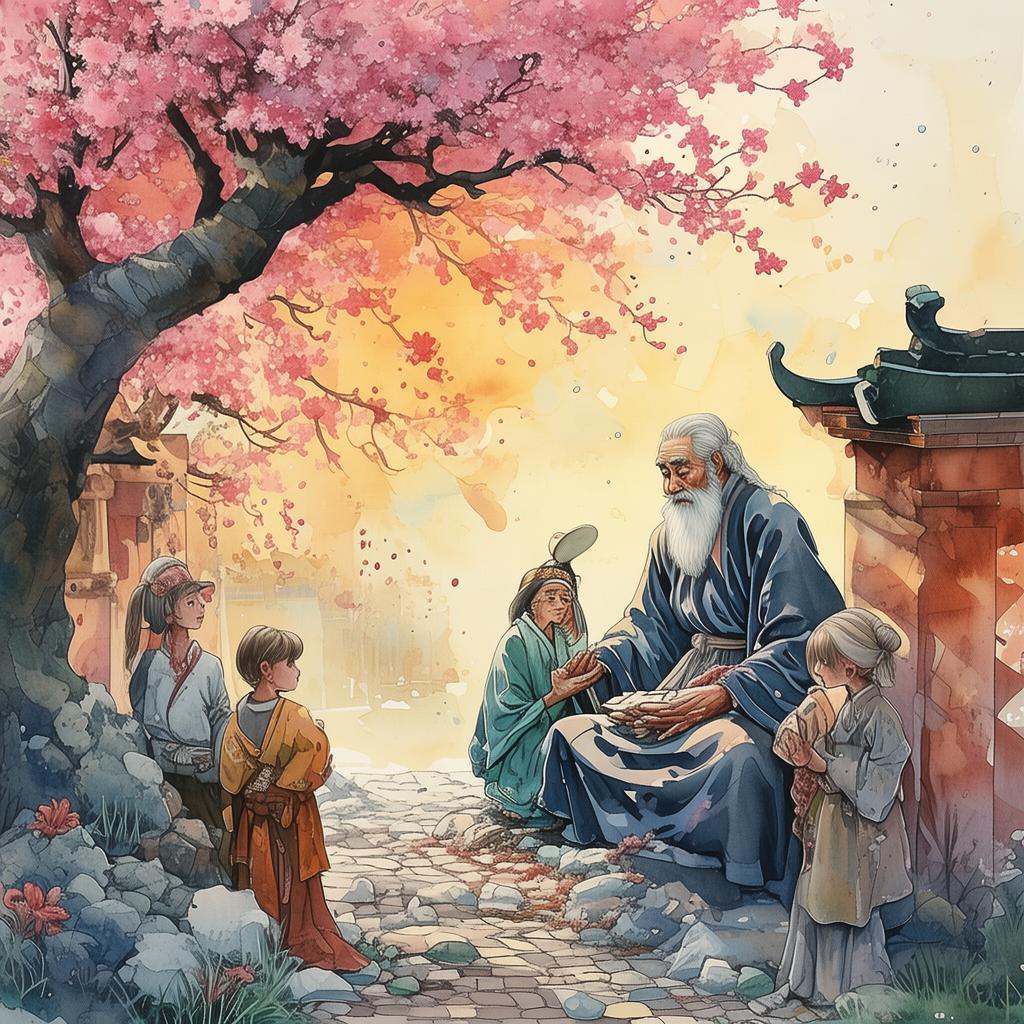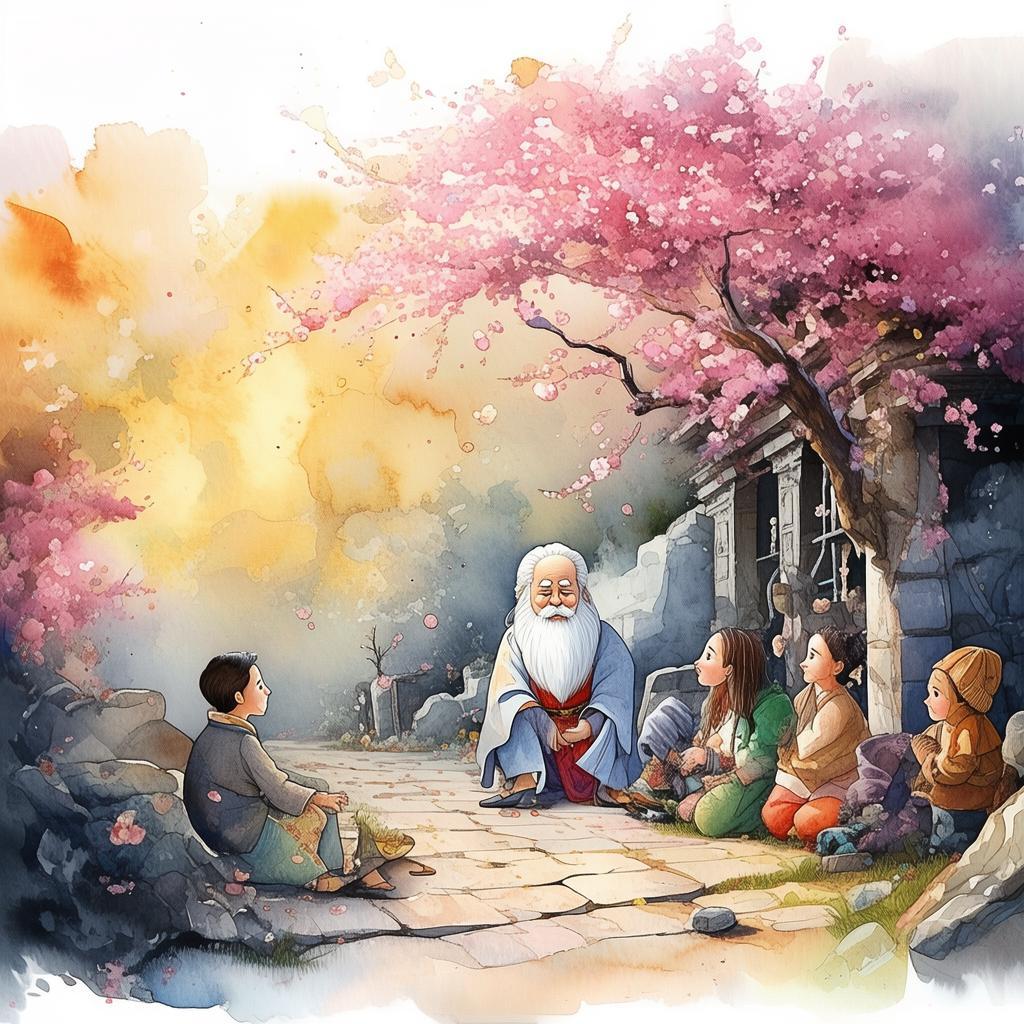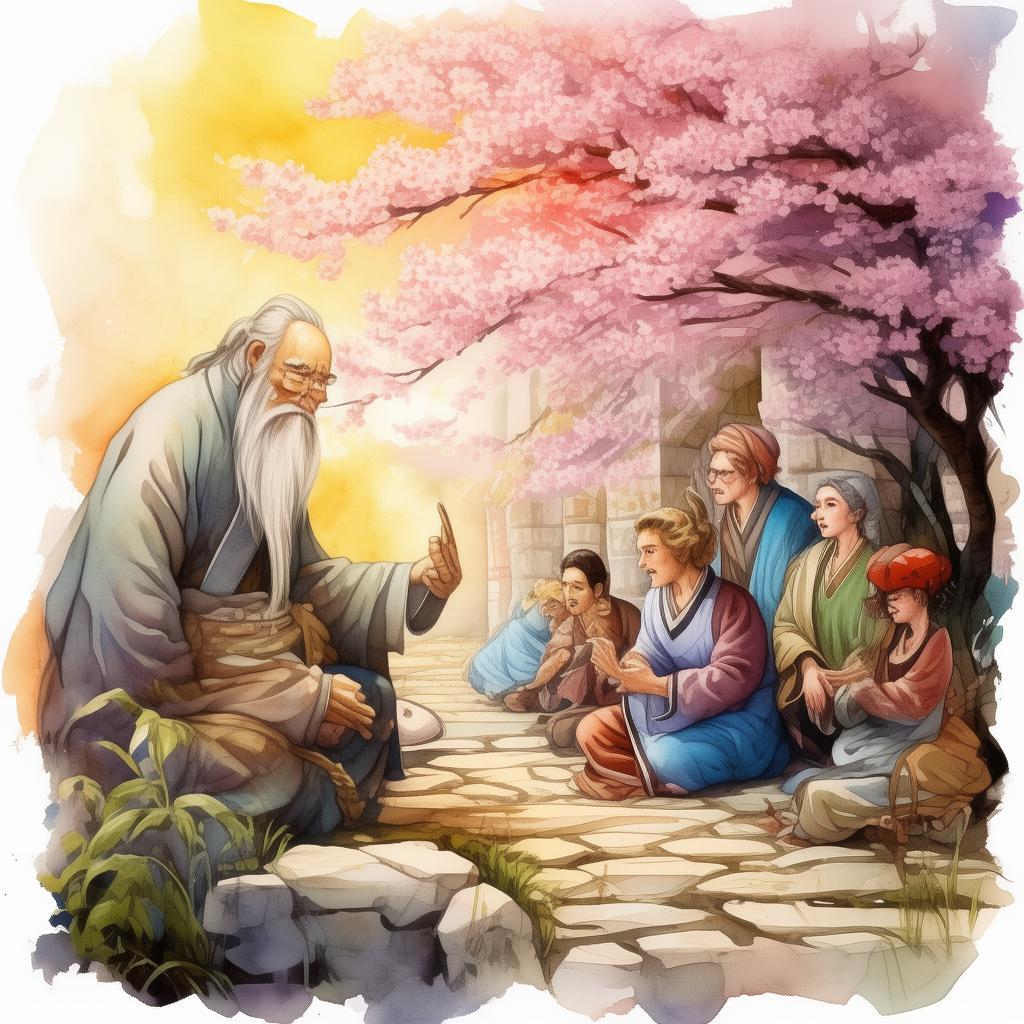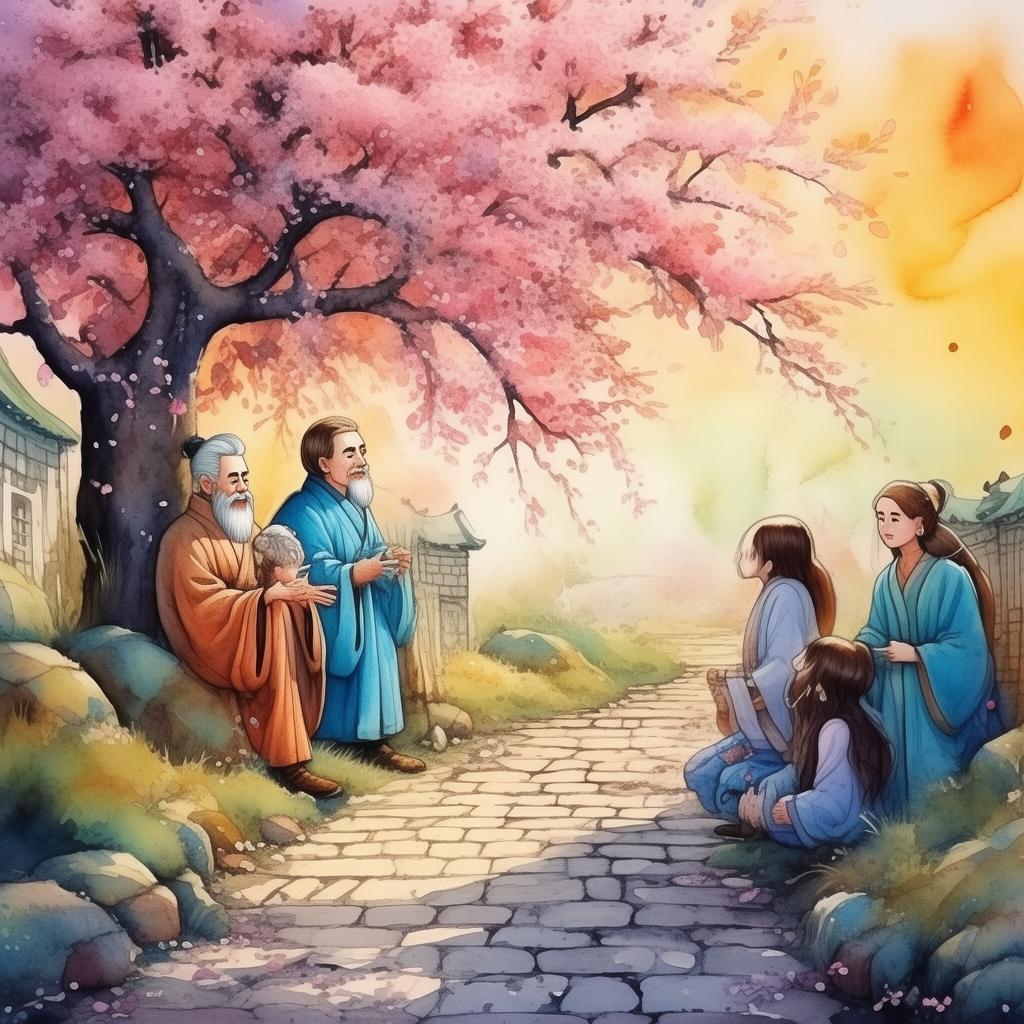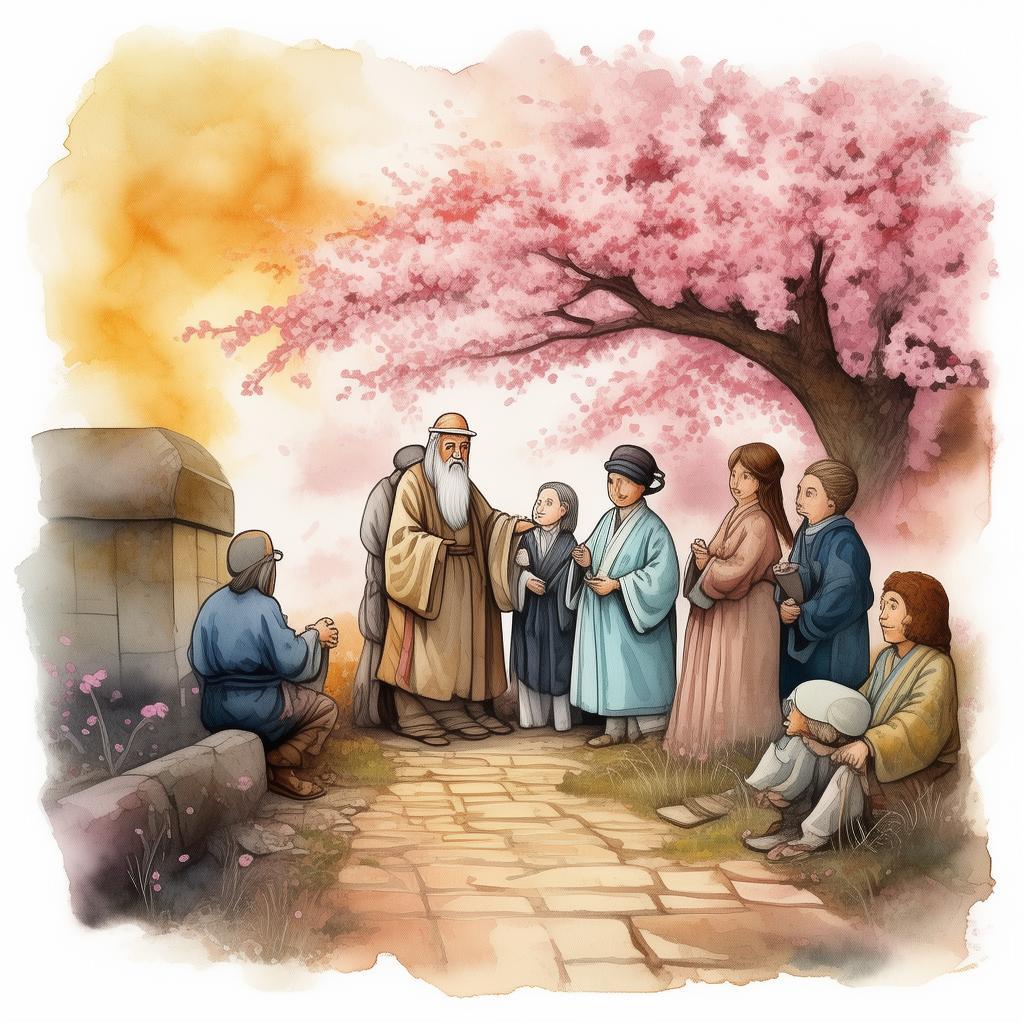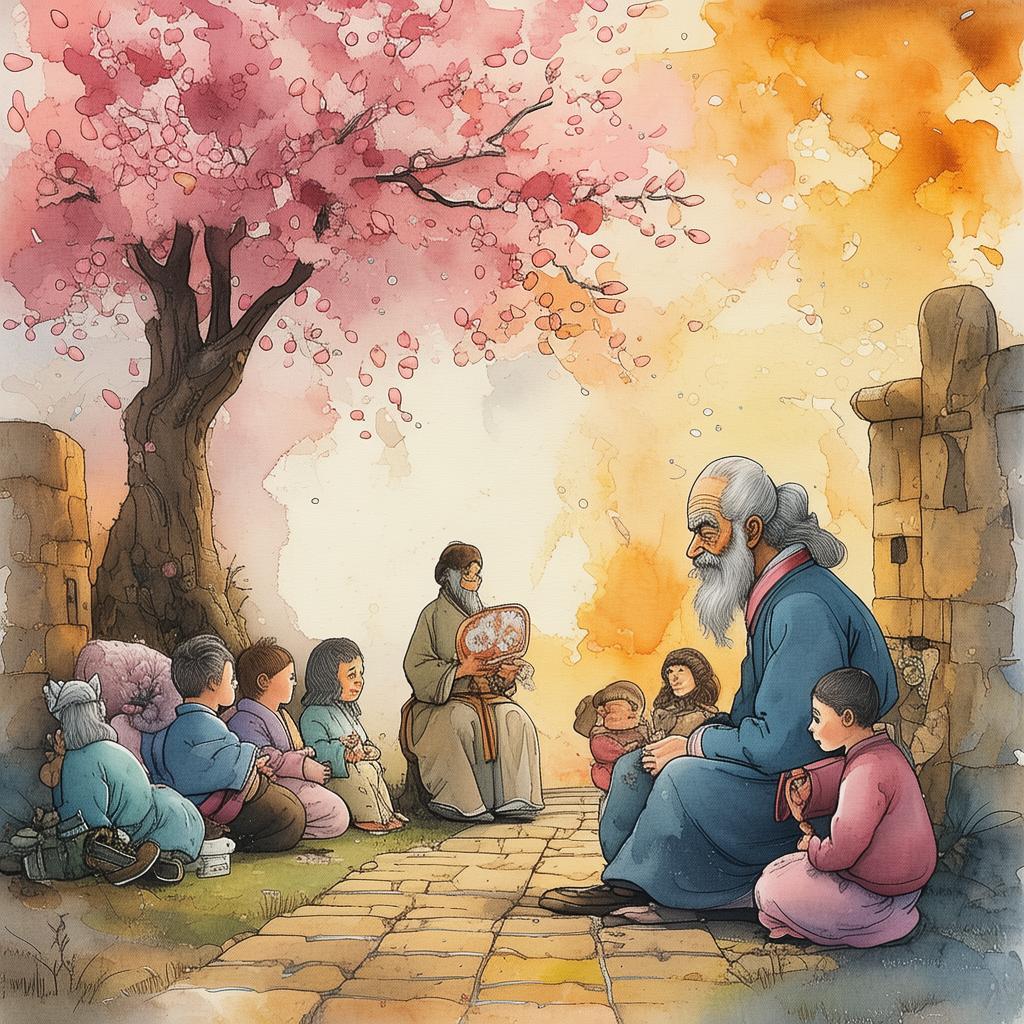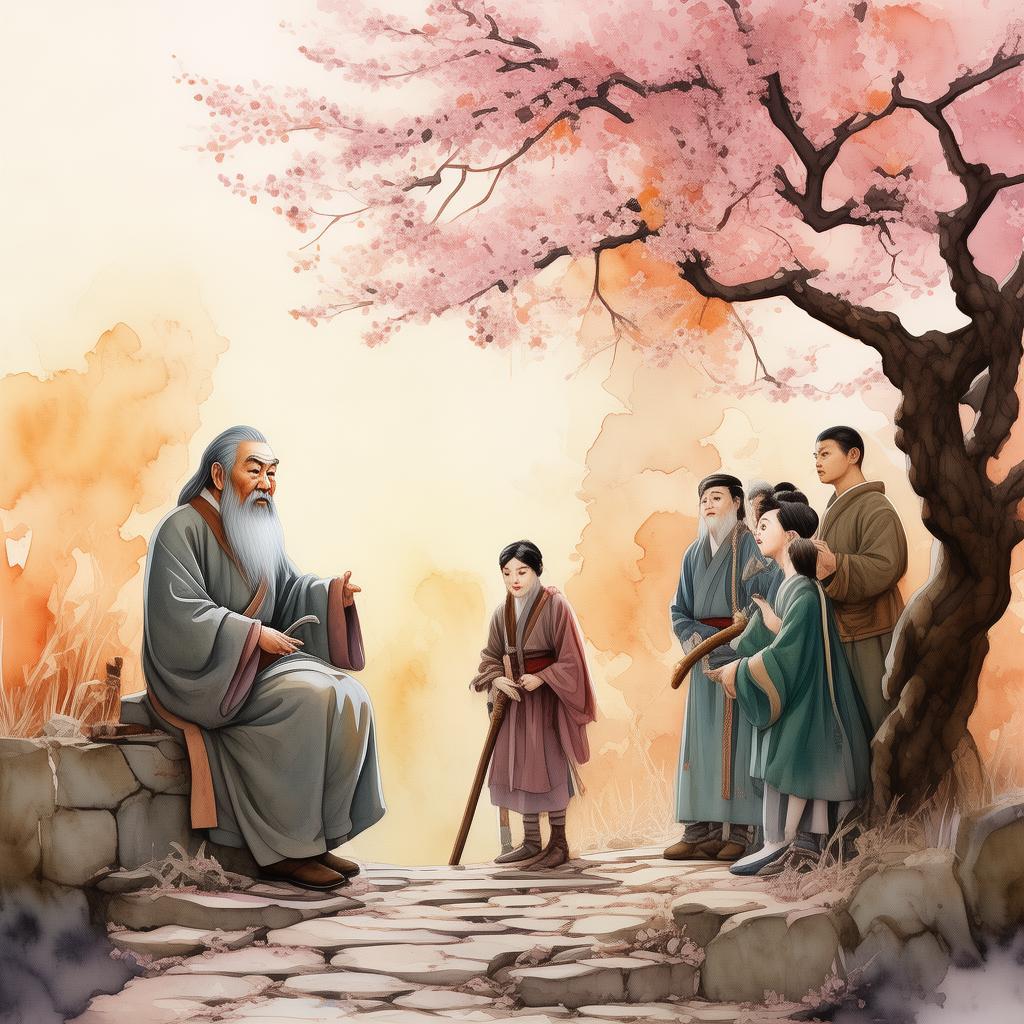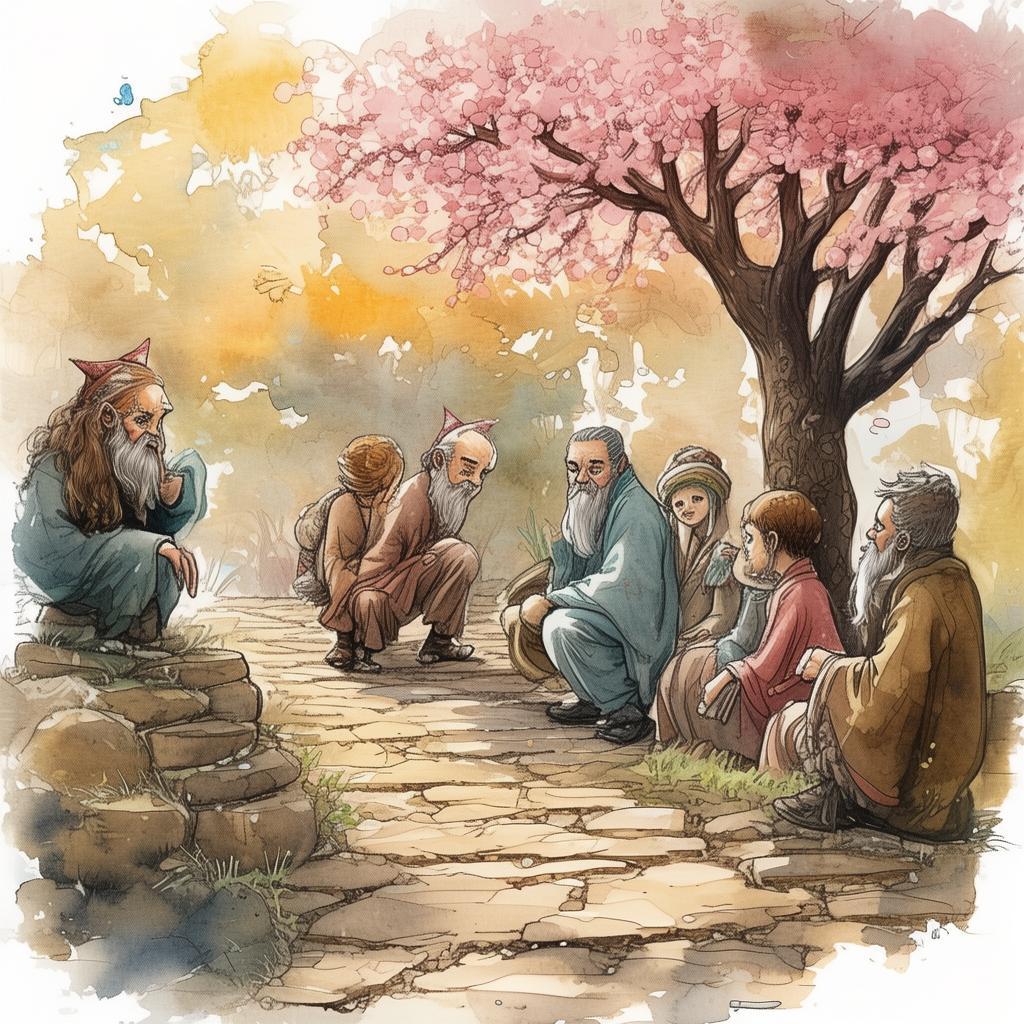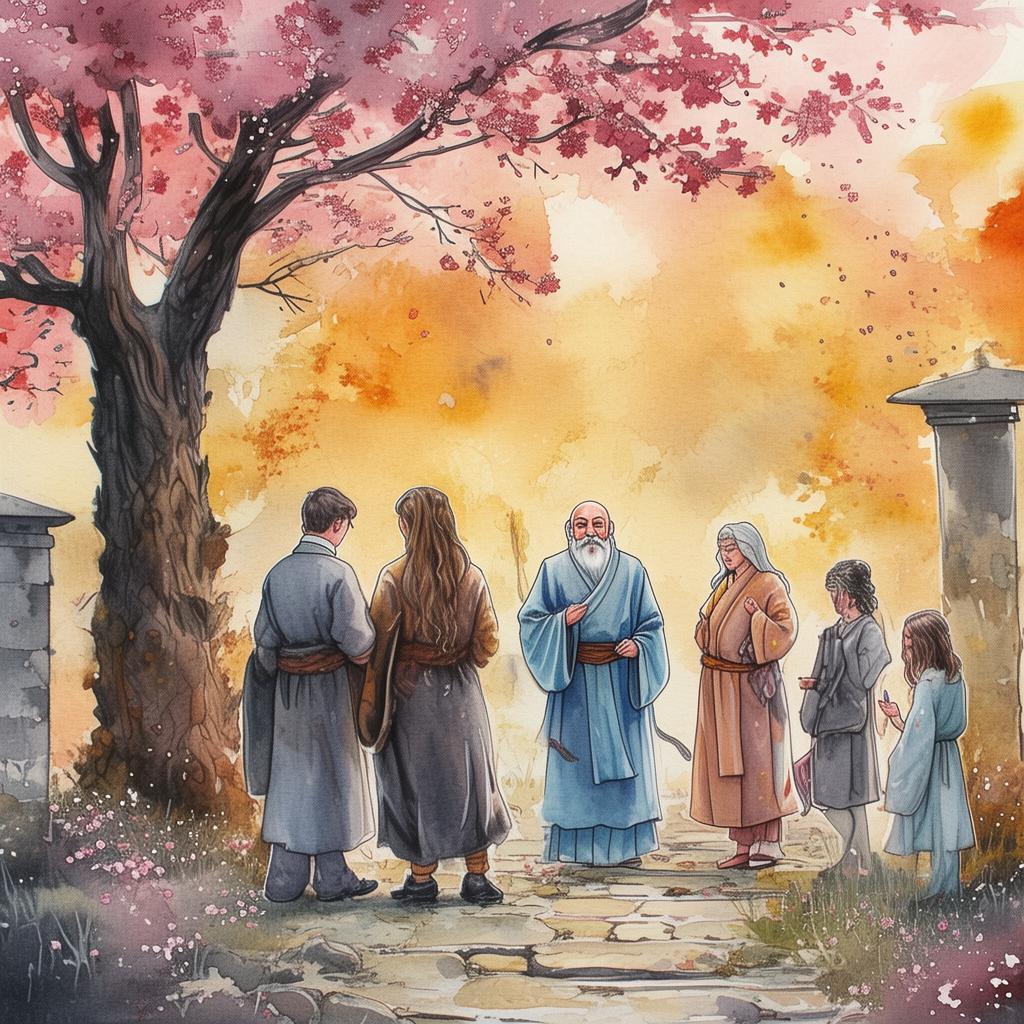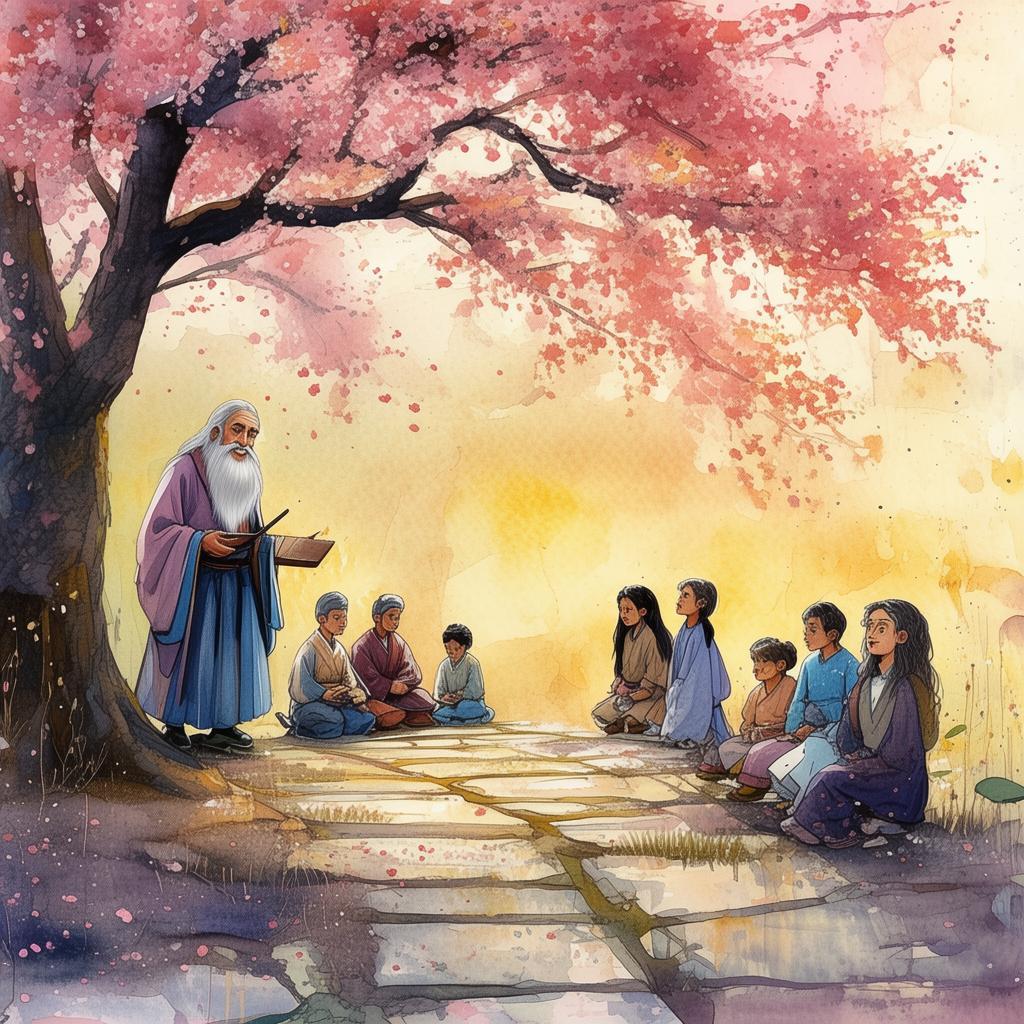Deception Unveiled: The Shadow of Victory
In the heart of ancient China, during the tumultuous Warring States period, a master strategist named Sun Tzu was renowned for his brilliance in warfare. He had written the famous "The Art of War," a treatise on military strategy that would influence strategists for centuries to come. But few knew the true story behind one of his greatest victories, a victory that came with a hidden price that would echo through the ages.
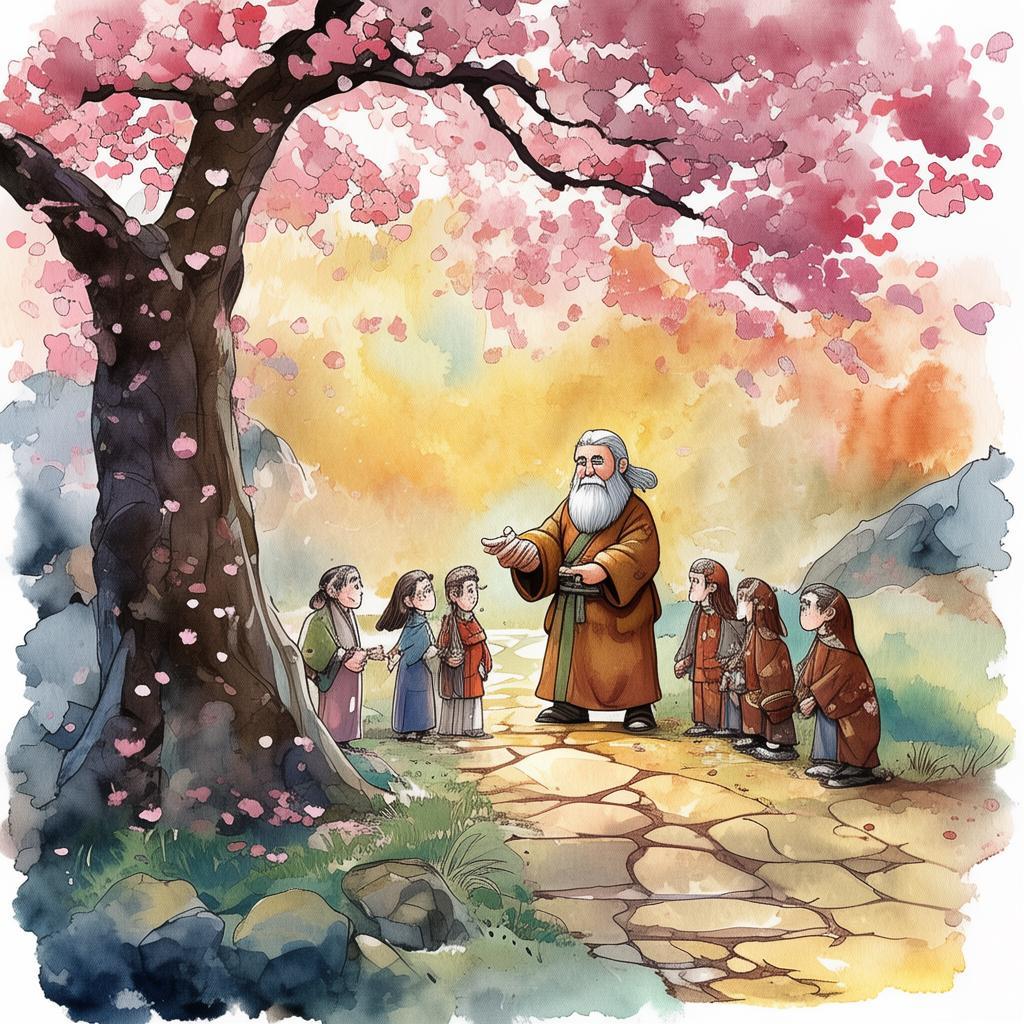
In the kingdom of Qi, a neighboring state threatened to overrun the land. The king of Qi, recognizing the urgency of the situation, sought the counsel of Sun Tzu. The king, though a man of peace, knew that the survival of his kingdom rested on the shoulders of this legendary strategist.
Sun Tzu, a man of unparalleled intellect and cunning, devised a plan. He proposed to the king that they create a decoy army, a facade of strength to mislead the enemy. The real Qi army would retreat, leaving behind a false front that would draw the enemy into a trap. The king, desperate for a win, agreed to the plan.
The decoy army was meticulously constructed. Soldiers were dressed in Qi's colors, and banners were raised high. The enemy, believing they had the upper hand, attacked with full force. Sun Tzu's real army, hidden in the shadows, awaited the perfect moment to strike.
The battle was a resounding victory for Qi. The enemy army was decimated, and the kingdom of Qi was safe. The king hailed Sun Tzu as a hero, and his name was etched into the annals of history. But as the dust settled, a shadow fell over the victory.
The people of Qi, unaware of the true events, were celebrating. They had defeated their enemies without a single casualty, and the king had returned triumphant. Yet, as the festivities continued, whispers of the real cost began to spread. It was said that Sun Tzu had used a secret weapon, a weapon of mass destruction that had left the enemy army in ruins, but it had also taken a heavy toll on the land.
The land, once fertile and abundant, now lay barren and desolate. The rivers were polluted, and the air was thick with the scent of death. The people, once prosperous, now suffered from the aftereffects of the battle. Many fell ill, and the once vibrant kingdom was now a shadow of its former self.
The king, filled with remorse, sought Sun Tzu. "Master, I had no idea," he said, his voice filled with sorrow. "I had no idea the cost of this victory would be so high."
Sun Tzu, a stoic man, replied, "Your Majesty, victory is not measured in the number of lives lost on the battlefield, but in the peace that follows. You have won a battle, but at what cost?"
The king's heart ached. He realized that the victory had come at a price he never could have imagined. The kingdom he had saved was now a place of sorrow and despair.
The story of Sun Tzu's victory spread far and wide, a cautionary tale of the hidden costs of war. It would become a lesson that would resonate through the ages, a reminder that every victory comes with a price, and that peace is a treasure far more valuable than any battle won.
✨ Original Statement ✨
All articles published on this website (including but not limited to text, images, videos, and other content) are original or authorized for reposting and are protected by relevant laws. Without the explicit written permission of this website, no individual or organization may copy, modify, repost, or use the content for commercial purposes.
If you need to quote or cooperate, please contact this site for authorization. We reserve the right to pursue legal responsibility for any unauthorized use.
Hereby declared.
